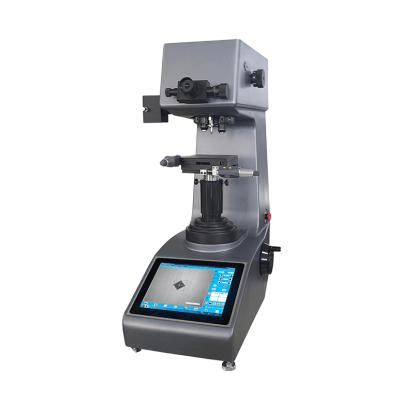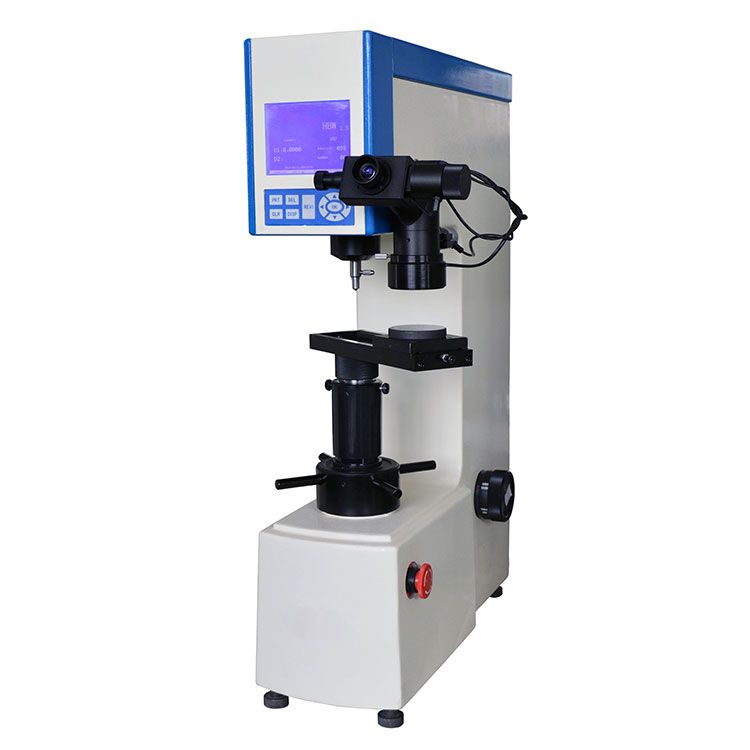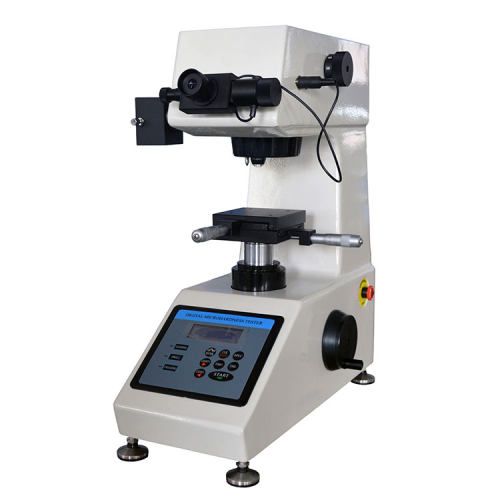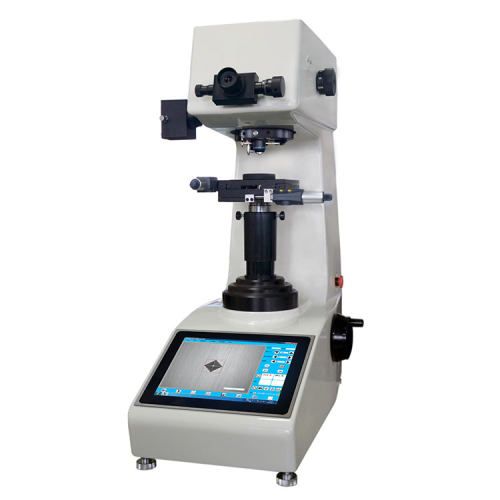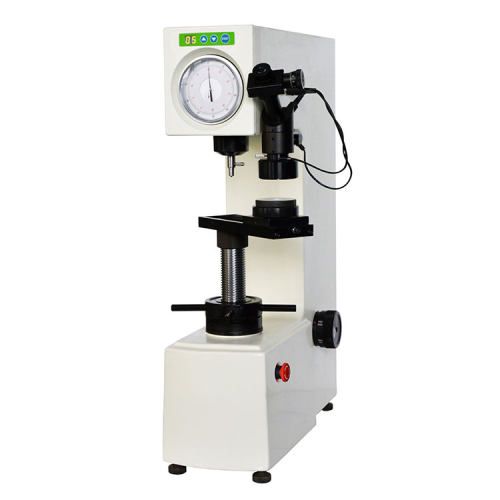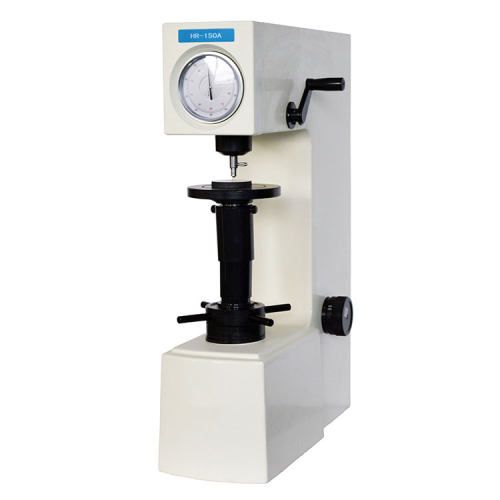Two of the most popular types of hardness testers used today are the Brinell and Rockwell hardness testers. They both measure the hardness of a material by measuring the depth of an indentation created by a particular indenter while being subjected to a certain force. However, there are some key differences between the two testers.
5 Differences Between Brinell Hardness Tester and Rockwell Hardness Tester
Difference 1: Test Force
In comparison to the Rockwell hardness tester, the Brinell hardness tester employs a much higher test force. As a result, the Brinell hardness tester is better suited to testing tougher materials like metals and alloys. Softer materials like plastics and polymers are better suited for the Rockwell tester.
The sample is more deeply indented as a result of the Brinell hardness tester’s increased test force. As a result, the Brinell hardness tester is more precise when evaluating tougher materials. The larger depression, however, also reduces the Brinell hardness tester’s suitability for evaluating softer materials because it runs the risk of damaging the test sample. The sample has a smaller indentation due to the Rockwell hardness tester’s use of a lower test force. Due to the tiny indentation’s difficulty in measurement, the Rockwell tester is less accurate when testing tougher materials. However, because of the lower indentation, the Rockwell tester is also more suited for evaluating softer materials because the sample will be less likely to be harmed.
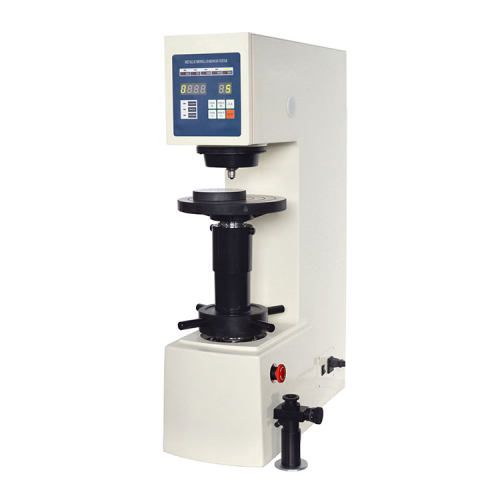
Difference 2: Indenter Type
A hardened steel ball indenter with a 10 mm diameter is used in the Brinell hardness tester. Under a strong test force, the ball indenter is driven into the sample. After that, the indentation’s diameter is measured and utilized to determine the Brinell hardness rating.
A hardened steel ball indenter and a diamond cone indenter are the two types of indenters used in the Rockwell hardness tester. Depending on the kind of material being examined, an indenter should be used. Typically, softer materials like plastics and polymers are tested with the steel ball indenter. Harder materials, such as metals and alloys, are frequently tested using the diamond cone indenter.
The indenter of the Rockwell hardness tester is pressed into the sample with a light test force. Next, the indentation depth is measured, and the result is utilized to determine the Rockwell hardness rating.
Difference 3: Measurement Accuracy
Most people agree that the Brinell hardness tester is more precise than the Rockwell hardness tester. This is due to the larger indenter and higher test force used by the Brinell hardness tester. A more uniform indentation is produced by the larger indenter and greater test force, which improves the accuracy of the Brinell hardness measurement.
However, a variety of variables, like the sample’s surface polish and the test force, have an impact on the accuracy of both tests. The indentation may be irregular and the measurement’s accuracy may suffer if the sample’s surface finish is uneven. The indentation may be uneven if the test force is not delivered correctly, which may affect the measurement’s accuracy.
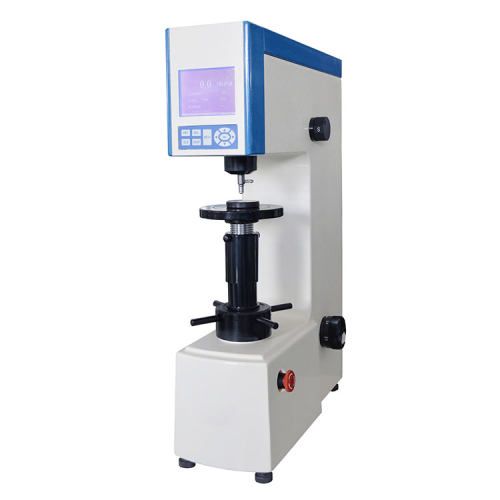
Difference 4: Price
In general, the Brinell hardness tester costs more than the Rockwell hardness tester. This is due to the Brinell hardness tester’s more difficult manufacturing process and the need for precise parts.
A hardness tester’s price can change based on a variety of elements, including the tester’s features and capabilities, the manufacturer, and the merchant. The Brinell hardness tester price, however, typically ranges from a few hundred to several thousand dollars. Although the Rockwell hardness tester price can range from a few hundred to several thousand dollars, it is often less expensive than a Brinell hardness tester.
Difference 5: Applications
Both the Brinell and the Rockwell hardness testers are useful instruments for determining the hardness of a variety of materials. Nevertheless, each tester has unique strengths and shortcomings that make it better suited for some applications than others.
Applications of Brinell Hardness Tester
Usually used to measure the hardness of hard materials like metals and alloys, the Brinell hardness tester measures hardness. Other materials, such as plastics and polymers, are also subjected to the test to determine their level of hardness. Here are some specific applications of the Brinell hardness tester:
- Testing the hardness of aluminum alloys
- Testing the hardness of cast iron
- Testing the hardness of heat-treated steel
- Testing the hardness of plastics and polymers
Applications of Rockwell Hardness Tester
A wide variety of materials, including metals, alloys, plastics, and polymers, can be tested with the Rockwell hardness tester. However, testing softer materials like plastics and polymers is where it is most frequently utilized. Here are some specific applications of the Rockwell hardness tester:
- Testing the hardness of nitrided steel
- Testing the hardness of carburized steel
- Testing the hardness of cold-worked steel
- Testing the hardness of plastics and polymers
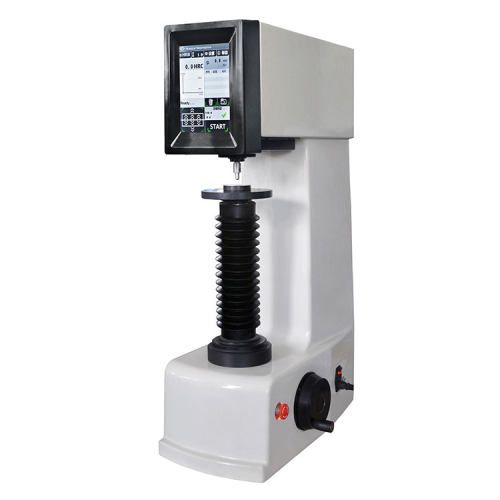
Conclusion
| Brinell hardness tester | Rockwell hardness tester | |
| Test Force | 3000 kgf | 60-150 kgf |
| Indenter Type | 10 mm hardened steel ball | 1/16″ or 1/8″ steel ball, or diamond cone |
| Measurement Accuracy | Lower | Higher |
| Price | Lower | Higher |
| Applications | Ferrous and non-ferrous metals, castings, forgings, сварные соединения | Ferrous and non-ferrous metals, heat-treated metals, thin materials |
For testing hard materials like metals and alloys, the Brinell hardness tester is often an excellent option. For testing softer materials, such as plastics and polymers, the Rockwell hardness tester is a viable option. While the Rockwell hardness tester employs either a diamond cone indenter or a hardened steel ball indenter, the Brinell hardness tester uses a hardened steel ball indenter. The type of material being tested and the level of accuracy required will influence the indenter selection. Your particular needs will determine which hardness tester is appropriate for you. The Brinell hardness tester is a suitable option if you need to measure the hardness of hard materials, such as metals and alloys. The Rockwell hardness tester is a suitable option if you need to measure the hardness of softer materials like plastics and polymers. Scopelabis a professional hardness tester supplier. If you need it, please contact us.
